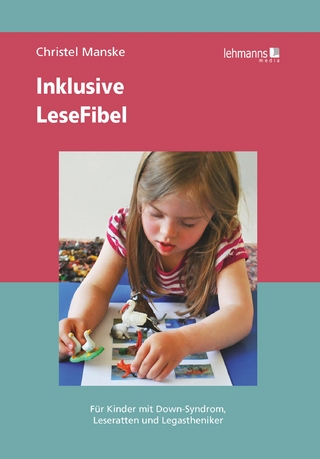
Rooted in Belonging
Teachers' College Press (Verlag)
978-0-8077-6822-8 (ISBN)
Most practitioners and scholars agree that critical and reflective early childhood and elementary teachers are foundational for children’s holistic growth and development. Yet current policies focused on elevating testing and performativity are contributing to student and teacher anxiety and alienation. This book offers a counternarrative to neoliberal standardized preservice teacher development and assessment processes. The author examines how a cohort of teacher educators worked alongside their preservice teachers—both groups predominately White and female—to redesign their teacher education program. Sherfinski reveals how the narrative portfolio, an inquiry-based alternative to accreditation and standards-based assessments, was designed to locally document, resist, and disrupt the status quo. The narrative portfolio speaks back to standardized preservice teacher assessments by providing spaces for teacher candidates to demonstrate their knowledge of theory and practice as enacted in the natural settings of school and community. Rooted in Belonging shows why humanizing, democratic, place-based practices should be at the forefront of teacher education.
Book Features:
Provides a rare portrait of equity-based teacher education at the confluence of place-based approaches, student diversity, and teacher education.
Grapples with tough issues such as how the shared Whiteness of preservice teachers and children and their families play out alongside their differences.
Explores how educators negotiate deep ideological differences while still preparing teachers for critical work.
Examines how the current political climate around Black Lives Matters, the 2020 presidential election, and the COVID-19 pandemic contribute to the challenges of working in communities.
Discusses how race, space, time, and settler colonialism shape the work of preservice teachers and their teacher educators.
Shares action research and teacher leadership assignments, critical thinking and planning exercises, personal reflections, and preservice teachers’ narrative portfolio artifacts.
Melissa Sherfinski is an associate professor of early childhood and elementary education at West Virginia University. Sharon Hayes is an associate professor of elementary education at West Virginia University.
Contents
Foreword Christopher P. Brown ix
Acknowledgments xiii
Introduction 1
“The Bubble” 2
Place-Based Education and Its Potential 4
A Dynamic Charge for Teacher Education 5
Chapter Summaries 5
1. The Need for Place-Based Teacher Education 7
Contexts for the Book 7
Three Challenges Connecting the Places 9
Why We Need Place-Based Teacher Education 11
Neoliberal Challenges to Place-Based Teacher Education 13
Reclaiming Accountability 16
Challenges of Reclaiming Accountability 18
Questions for Reflection and Discussion 20
What’s Next? 20
2. Theoretical Framework 21
The Nature of Meaning-Making 21
Three Approaches to Place-Based Education 22
Humanizing Place-Based Education in School Classrooms 23
Place-Based Teacher Education 29
Negotiation: Sensing and Resisting Neoliberal Policies 32
Questions for Reflection and Discussion 37
What’s Next? 37
3. The Narrative Portfolio Project 38
Context of the Teacher Education Program 38
The Narrative Portfolio as a Counter-Narrative to Failure 44
Questions for Reflection and Discussion 56
What’s Next? 56
4. Resisting Neoliberalism Through Place-Based Narrative Portfolio Work 57
Getting Lost in Places 58
Vignette 1. Critical Reflection on Place 61
Vignette 2. Dialogism With Place in Mind 65
Vignette 3. Transforming I-It to I-You 71
Vignette 4. Diffraction: Bending Around Barriers 75
Conclusion 80
Questions for Reflection and Discussion 81
What’s Next? 81
5. Pairing Our Place-Based Approach With Racial Justice 82
Antiracist Education 83
COVID-19 and Antiracist Teaching 87
Place-Based Education Post-Graduation 99
Conclusion 105
Questions for Reflection and Discussion 106
What’s Next? 106
6. Practice and Policy Implications 107
Teacher Education Program Assessment in the “Cluster” 108
Transforming Teacher Education Assessment 112
The Change Process 114
Suggestions for Practice 118
Conclusion 123
Questions for Reflection and Discussion 123
What’s Next? 123
Appendix A. Methodology: Capturing Meanings of Place-Based Education and Assessment 125
Background for the Study 125
Method 125
Appendix B. Lenses of Teacher Education and Revised “10 Characteristics of the Novice Teacher” for PDS Mentors and Faculty Professional Development 133
Appendix C. A Portrait of Becoming 137
Our Places 138
Learners and Teachers 139
Beginning the Year: Looking and Seeing as an Ethnographer 139
Exploring the Literature: Disrupting the Commonplaces 140
Our Journey 141
Our Learning 141
A Reflective Pause With an Eye to the Future 142
Final Thoughts 143
Appendix D. Destiny’s Book Club: Stamped by Reynolds & Kendi (2020) (Abbreviated Version) 145
References 147
Index 163
About the Authors 175
| Erscheinungsdatum | 30.01.2023 |
|---|---|
| Reihe/Serie | Early Childhood Education Series |
| Co-Autor | Sharon Hayes |
| Mitarbeit |
Herausgeber (Serie): Christopher P. Brown, Nancy File |
| Vorwort | Christopher P. Brown |
| Verlagsort | New York |
| Sprache | englisch |
| Maße | 156 x 229 mm |
| Gewicht | 272 g |
| Themenwelt | Sozialwissenschaften ► Pädagogik ► Schulpädagogik / Grundschule |
| Sozialwissenschaften ► Pädagogik ► Vorschulpädagogik | |
| ISBN-10 | 0-8077-6822-7 / 0807768227 |
| ISBN-13 | 978-0-8077-6822-8 / 9780807768228 |
| Zustand | Neuware |
| Haben Sie eine Frage zum Produkt? |
aus dem Bereich


